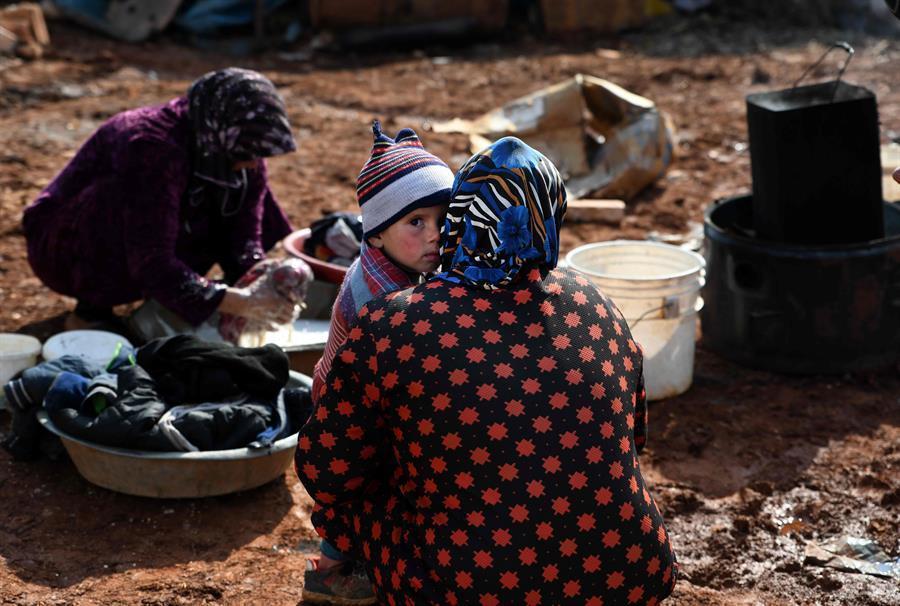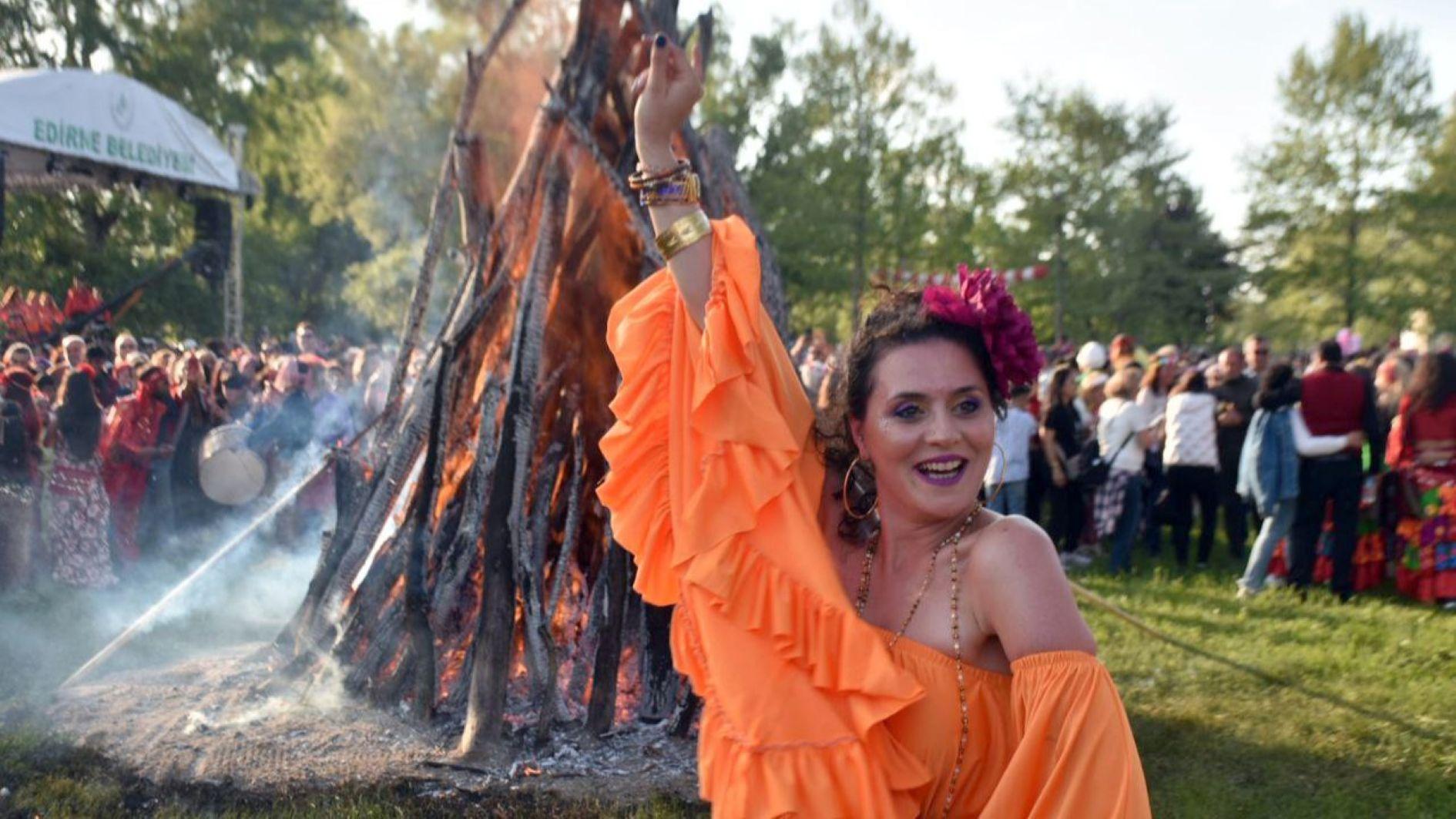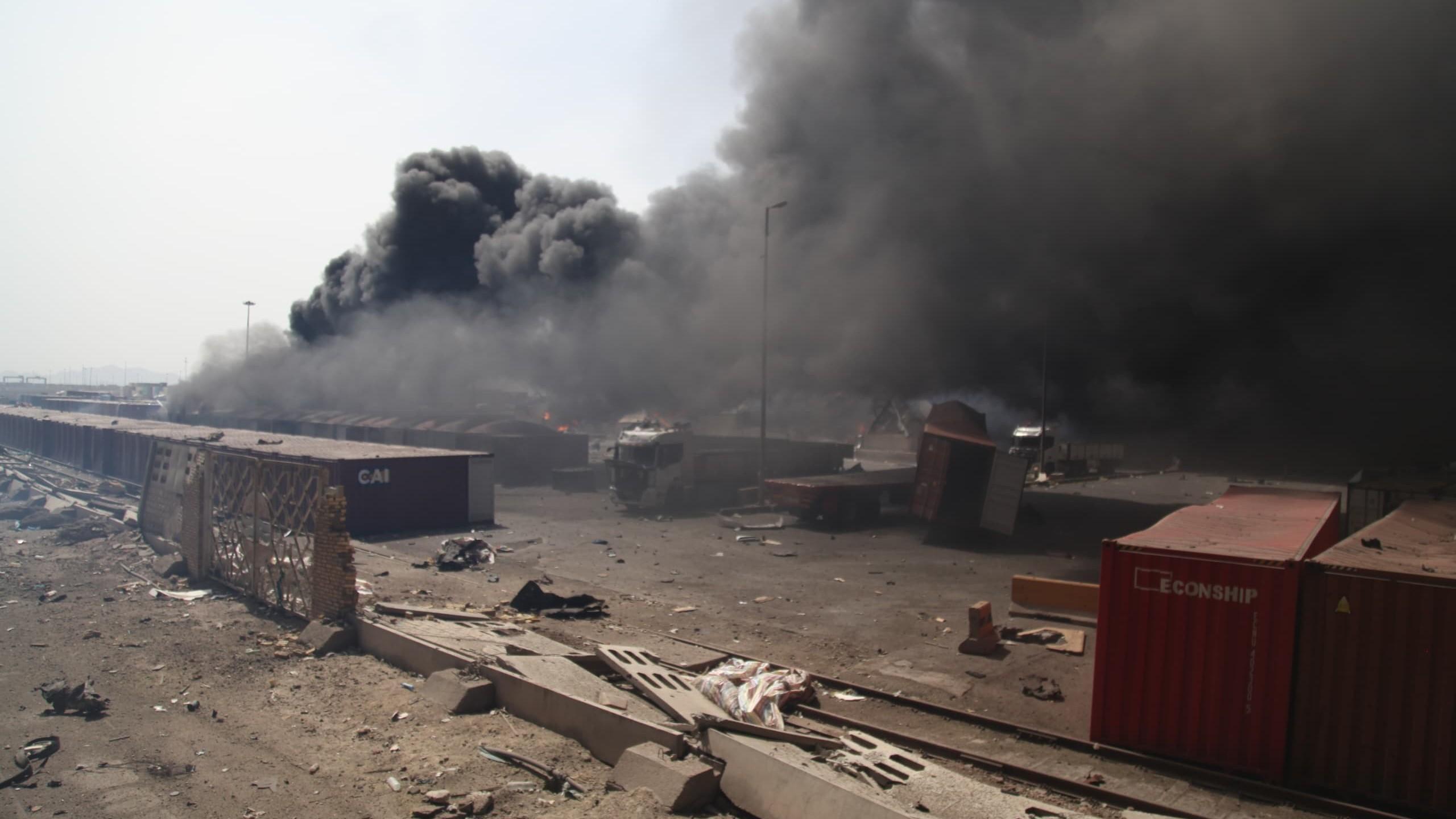UN chief alarmed by tragic suffering in northwest Syria
GENEVA

UN Secretary-General Antonio Guterres voiced alarm on Feb. 18 over the humanitarian situation in northwest Syria, where an ongoing offensive has displaced nearly 900,000 civilians since December.
Guterres is "alarmed by the rapid deterioration of the humanitarian situation in northwest Syria and the tragic suffering of civilians," his spokesman Stephane Dujarric said in a statement.
The UN chief called for an immediate ceasefire amid clashes between opposition groups and Syrian regime forces backed by Russia and Iran.
"International humanitarian law must be upheld. There is no military solution," said Dujarric, adding a "credible and inclusive UN-facilitated political solution" would be the only path to stability.
Dujarric said the hostilities are approaching densely populated areas and Syrians are "on the move in freezing temperatures in search of safety, which has become ever more difficult."
Mark Lowcock, the UN's humanitarian affairs chief, said on Feb. 17 that "indiscriminate" violence in the region had reached "a horrifying new level" since the regime offensive began in December and he demanded the Security Council to take action to avoid a catastrophe of historical proportions.
"The biggest humanitarian horror story of the 21st Century will only be avoided if Security Council members, and those with influence, overcome individual interests and put a collective stake in humanity first. The only option is a ceasefire," he said.
Regime attacks kill 300 this year: UN
Meanwhile, Syrian government air strikes backed by Russia have hit hospitals and displaced persons camps in northwest Syria and killed about 300 civilians as President Bashar al-Assad’s forces press an assault against the last rebel stronghold, the United Nations said on Feb. 18.
In a statement expressing “horror at the scale of the humanitarian crisis,” Michelle Bachelet denounced direct hits on or near camps of displaced civilians, as well as on medical and education facilities, including two hospitals on Feb. 17. She has previously said such acts could be war crimes.
“Entire families, some who have fled from one corner of Syria to the other over the course of the past decade, are tragically finding that bombs are part of their everyday life,” said Bachelet.
The U.N. Human Rights Office recorded 298 civilian deaths in Idlib and Aleppo, where the government offensive has been concentrated, since Jan. 1.
Her spokesman Rupert Colville, asked whether Syria and Russia were deliberately targeting civilians and buildings protected under international law, told a Geneva briefing: “The sheer quantity of attacks on hospitals, medical facilities, and schools would suggest they cannot all be accidental.”
Bachelet’s comments came a day after Syrian President Bashar Assad pledged to press ahead with a military campaign in the northwest. His troops have been making rapid advances against rebel-held areas, sending hundreds of thousands of people fleeing for safer areas.
Assad congratulated his forces for the gains, vowing complete victory “sooner or later.”
More than 900,000 people have been displaced from their homes since the beginning of December, according to the U.N. Those include some half a million children, according to Henrietta Fore, executive director of the U.N.’s children’s agency, UNICEF.
Syrian and Russian warplanes meanwhile kept up raids on the town of Darat Izza in Aleppo province on Feb. 18, witnesses said, one day after two hospitals there were badly damaged.
At Al Kinana Hospital, blown-out walls and dust-covered medical cables and supplies were strewn about the hospital after two staff were wounded on Feb. 17, witnesses said.
Appearing on national television on Feb. 17, Assad said the rapid military gains presaged the eventual defeat of the nine-year-old insurgency against him although it could still take time.
The offensive has also disrupted a fragile cooperation between Ankara and Moscow, who back opposing factions in the war.
















